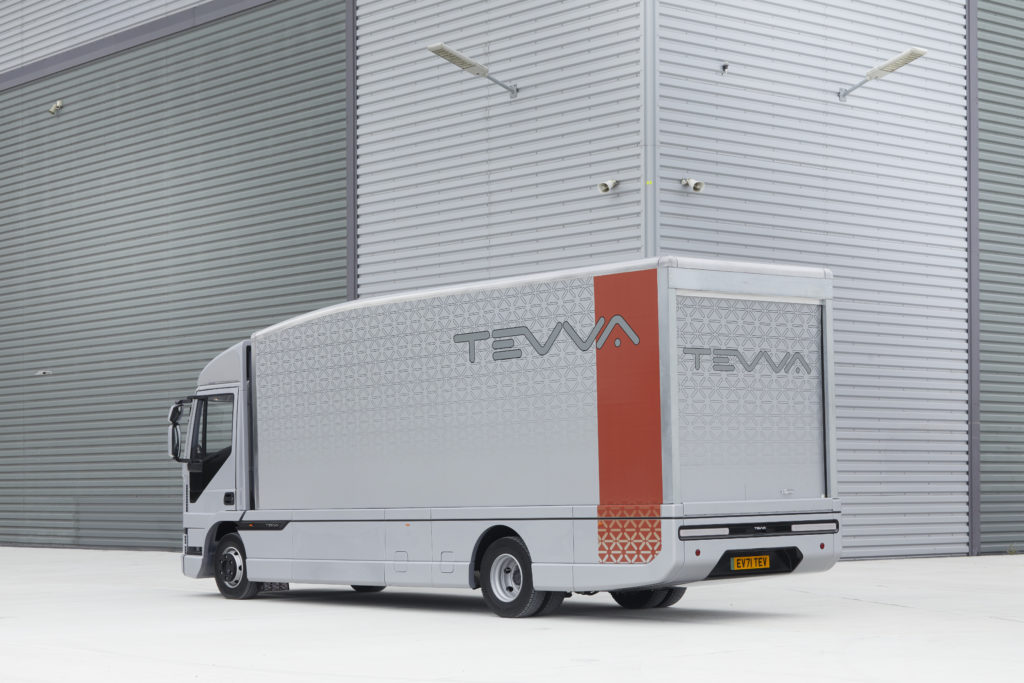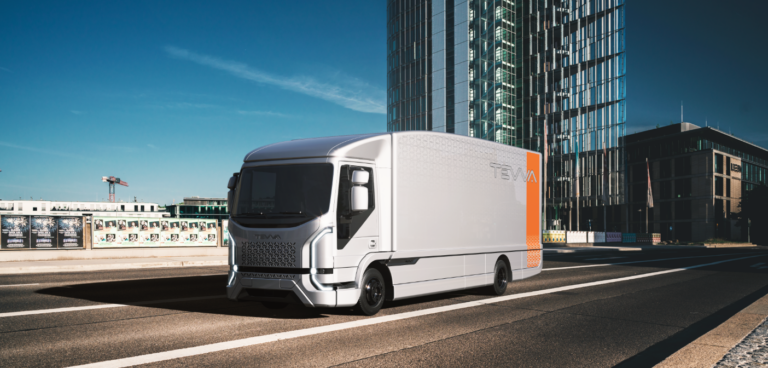Electric truck manufacturer Tevva has unveiled its first 7.5-tonne electric truck designed for mass production in the UK.
The Tevva Truck has been devised to assist the industry in switching to electric HGVs, with the UK and Europe committing to a target of net zero emissions by 2050, alongside a proposed ban on the sale of all polluting vehicles by 2030.
Offering a range of up to 160 miles (250km) in pure battery electric vehicle form, or up to 310 miles (500km) with its patented range extender technology, which has now been upgraded to use hydrogen fuel cells. Tevva added its electric truck brings a best in class combination of capability and cost efficiency from a zero emissions medium duty truck, while offering the ruggedness and resilience of traditional trucks.
Asher Bennett, founder and CEO of Tevva, said: “Technology is transforming the commercial vehicle sector at pace, making it safer, greener, and entirely more efficient. But meaningful change is a gradual process, it must happen one step at a time, even if those changes are needed in fast succession.
“The Tevva Truck provides a natural transition into electrification for fleet managers, providing total peace of mind and a compelling total cost of ownership proposition, with no compromise on range and reliability and minimised compromise on payload.”

The Tevva Truck will be manufactured in a new facility in the London Thames Freeport area, providing close proximity to central London and Europe.
The 11,000m2 manufacturing plant is set to create an additional 1,000 skilled mechanical, software, engineering, and manufacturing jobs in the next 24 months, adding to the 60 plus jobs Tevva has created this year.
The company added this is part of an initiative that has already seen tens of millions of pounds being invested into the UK, with further funding planned. Tevva aims to support the economy and propel Britain’s EV revolution. The facility is initially expected to begin manufacturing 3,000 trucks per annum by 2023.
Read more: Worldwide electric truck market to exceed one million units by 2030





